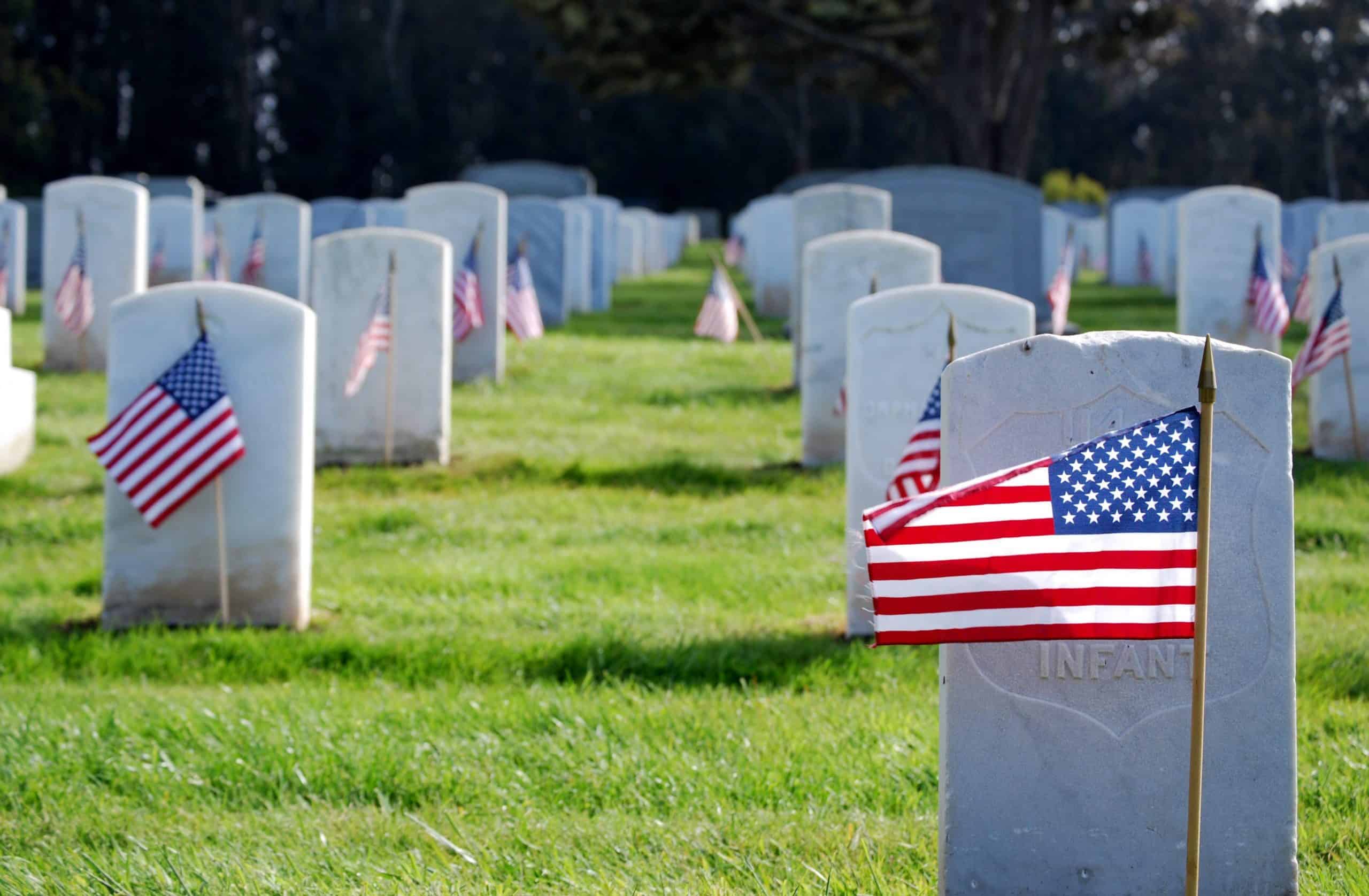
For Some, Grief and Memorial Day Go Hand in Hand
For many of us, Memorial Day is a time to have cookouts, parades, and fun at the beach to celebrate the unofficial kickoff to the summer season. But for countless others, Memorial Day is a time to grieve for their loved ones and other brave soldiers who perished while serving in the United States military. We consider ourselves lucky to have many veterans in our hospice programs, both patients and family members. We understand how sensitive a time this is, which is why we offer bereavement services in San Mateo and elsewhere. In remembrance of those who gave the ultimate sacrifice, we believe our still-living veterans should be cared for and treated with dignity, compassion, and respect.
We also realize that when Memorial Day (Monday, May 30, 2022) rolls around, it’s not necessarily a jubilant celebration for everyone. We are sensitive to that fact and this week would like to explore how for some, grief and Memorial Day go hand in hand. Memorial Day wasn’t always known as such. It was officially created under the name Decoration Day, put in place to honor the country’s war dead in the 1860s around the Civil War.
This holiday that introduces us to the summer season may mean a long weekend off work or school, but for many families, it’s also a time of somber reflection and commemoration. That doesn’t mean people who have lost loved ones in war don’t have cause to celebrate. There’s room for both on Memorial Day, says Michel Martin on NPR — a time for celebration and refreshment, offset by pause and remembrance.
How You Can Help
The void that remains after losing a loved one is really never filled. That deep pain of losing a parent, spouse, child, or sibling to battle stays with us, so it can be difficult to know what to say to someone who is in this position. Do you not invite them to your barbecue? Do you feel bad about celebrating? Absolutely not. Include them like you would anyone else — especially them. But just make sure a part of your celebration focuses on the true origin of the day: remembrance and respect. All you can do is support them and make sure they know that you truly appreciate the sacrifices their loved ones made in honor of a grateful nation, says AARP.
A simple “I’m sorry for your loss” will always suffice, but you can also add a personal touch such as “Your son was a brave man, but he was also a great friend and always knew how to make me smile.” Don’t compare their loss to one of yours, and don’t add religious undertones to your message. Keep it simple, and add personal stories and anecdotes wherever appropriate. People who have lost a loved one in battle don’t want their loved one’s memory forgotten, and will therefore typically appreciate any memories and stories you can share about their loved one.
Honoring the Fallen
Grief is usually easier to manage when engaging in community and fellowship with other people. It’s true that gathering with others to share stories and take part in traditions that honor the sacrifice and service of loved ones can help us work through the spectrum of feelings that can surface in a big way as we approach Memorial Day.
You may be wondering what you and your family can do to commemorate this May holiday and show your support. Here are a few suggestions:
- Fly the Flag: Not sure of the etiquette? Check out the guidelines here.
- Attend a Parade: This is a patriotic and community-based way to cheer on your veterans, active service members, patriotic organizations, and bands as they march through the streets of your town.
- Visit a Cemetery: Here is a list of the VA National Cemeteries if you want to locate national cemeteries near you featuring designated veterans areas. Catch a special ceremony with speeches, wreath layings, choirs, and color guards.
- Have a Moment of Silence: Pause at 3 p.m. on Memorial Day for a moment of silence.
- Visit a Veteran’s Hospital: Bring cookies and cards to the local veteran’s hospital to visit with veterans.
We Love Our Veterans
Pathways have always been sensitive to veterans’ needs, as we understand the unique health risks they have and the care necessary to ensure veterans get the attention and resources they deserve. From exposure to various chemical agents in wartime to post-traumatic stress disorder (PTSD), our veterans suffer from a variety of mental health issues originating from their time of service. Our medical social workers are trained to know and understand the unique needs of veterans at Pathways.
They connect veterans with community resources for themselves and their entire families. Additionally, we partner with local VA facilities to ensure the needs of our hospice population are met. We also hold pinning ceremonies to recognize their service to this nation and its many grateful citizens. Veterans get an appreciation certificate and veteran pin that reads “PROUDLY SERVED.”
Contact Pathways Home Health and Hospice
Find out how Pathways cares for the veterans in our hospice care program, or ask us about the Pathways We Honor Veterans team, when you contact us at 888-978-1306.

